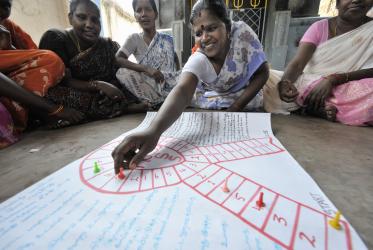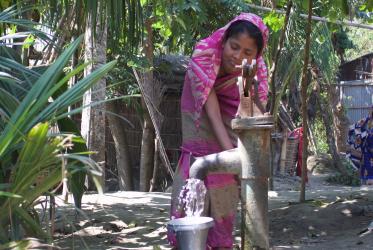Displaying 1 - 20 of 25
Eco-School promotes blue communities, green churches
19 November 2019
WCC Eco-School begins in Thailand
07 November 2019
WCC condemns massacre of farmers in Philippines
12 April 2019
Diakonia: “a tool to reach abundance of life”
24 July 2018
Seven weeks of Lent highlight water justice in Latin America
12 February 2018
G20 summit: call to pray for peace in Hamburg
07 July 2017
G7 must address famine
22 May 2017
WCC Executive Committee issues statement on climate justice
25 November 2016
Winners of WCC photo contest announced
09 May 2016
New video presents Ecumenical Advocacy Alliance’s call to action
13 January 2016














